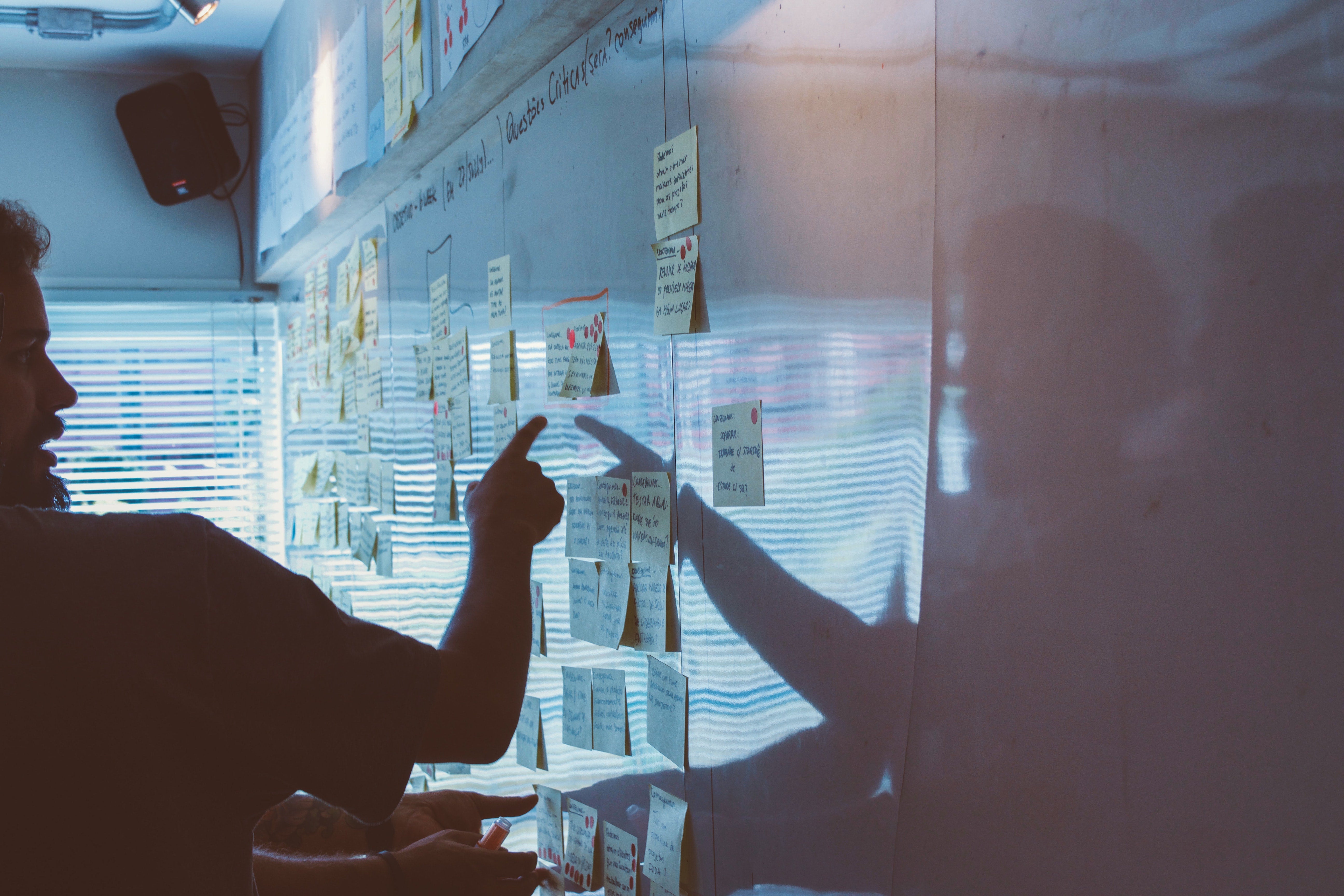Photo by Lachy Spratt on Unsplash
We've waited patiently for this moment. We watched as musicians lost their livelihood and struggled to find inspiration. We watched concert venues close down and bands break up.
But that's not all. We saw once dormant groups return with stunning albums from their time in quarantine. We saw beginners take their music to the next level with incredible determination. And through it all we stayed patient, knowing that the rebirth of live music would one day come.
And now it has. Booking agents are busy again. Artists and bands that have longed for an opportunity to play again are jumping at the chance.
If that includes you, we share your excitement. So much so that we compiled a list of tips to give you an advantage going back into the live music industry. Whether you take the stage solo or with a full outfit, this blog post will give you an edge.
Here are 5 ways you can prepare to play again:
Number 1: Create or Refresh Your EPK
You'd be surprised how many musicians and bands don't compile a full EPK (electronic press kit). This isn't to say that you can't book shows without one, but having one can help you stand out from the crowd.
An electronic press kit is in all-in-one packet of promotional materials. You can think of it as your musical resume and sonic biography. By giving yours to a talent buyer or venue owner, they get a snapshot of who you are, what you do and why they should choose you.
So, what's in an EPK?
A list of your albums and songs
Put your best tracks at the top. The booker will listen to those first. Plus, for better or for worse, busy talent buyers are unlikely to listen to your whole discography.
Hi-res photos of you, your band and your album art
Ensure that these photos are high quality. Make them memorable.
If you have photos of the crowd around you, make sure to include those. Photos that show engagement perform better than those that don't.
Album reviews, write-ups and other press
If you've ever had a journalist or friend do a write-up on your music, link to it! Social proof of your musical prowess is a surefire way to garner interest from a booking agent.
If you don't have any of these yet, don't sweat it! Continue to write the music you love and they will come.
Links to social media
1. We will cover how to refresh your social media profiles in a moment, but linking to them is a vital part of an EPK.
2. Do you or your band have an official website? Put that at the top of the link list.
3. Where can listeners find your music? Link to those spots, too.
This is not a comprehensive list. Adding other media such as music videos and interviews can do wonders in creating an ethos and personality around your music. You might add statistics regarding your number of followers and plays from music distribution services. Get creative with it. Highlight the things that make your music special.
Number 2: Update Your Social Media Profiles

Photo by Alexander Shatov on Unsplash
Still pinning your tweet from 2019? It's time to change things up. Even if you haven't had a release in a while, it's important to center your music in the present moment.
Got something in the works? Collaborating with someone? Give talent buyers and booking agents a glimpse into the future of your music. Promoting your music is hard work, but it's worth it.
Here are concrete tips for you:
Update your bio on Facebook, Twitter and Instagram
Each of these have different length requirements and stylistic parameters, but here are some things to keep in mind:
Mention your band members! Putting faces to names and vice versa brings life to your group. If you're a solo artist, let people know who you are and what you're about.
Establish your location. Are you based in a metropolitan center? A small town? Rep it. Entering yourself into the stream of local music in your area is vital for developing relationships with other artists and promotors.
Tell everyone what you're planning and working on. Maybe you're in the songwriting process. You might be recording a new single, EP or record. Whatever it is, give the audience something to look forward to.
Change up your profile and cover photos
Giving your overall profile a new look will inspire excitement about your upcoming shows and projects.
Don't limit yourself to Facebook and Instagram. If you distribute music on Spotify, for instance, make sure to update your media there, too!
Engage with your audience and fans
You want your make social media presence more than just phots and updates. Make it a community where you build relationships with your fans. In doing so, your reach will increase greatly on word of mouth alone.
Respond to comments on your statuses, photos and concert announcements. Let people know you're grateful for their interest and support.
Offer merch discounts, early ticket sales or other perks to your followers.
Be creative and adaptable. Your audience is a unique microcosm of creative people. Through engagement you can find out what matters most to your fans, and cater to it.
Number 3: Go to Shows and Network
This tip goes double for musicians and bands who are part of a local scene. It is absolutely paramount that you go to shows and make connections. Extending the network you have with like-minded artists will pay huge dividends in your ability to find and book concerts.
Consider how much it means to you when people come to see you perform. Having your passion for music affirmed by others gives you the fire to keep progressing. You can be that for someone else, too. And by creating these reflexive, mutual relationships, you will find new bands to play with, multiplying your connections.
Check Facebook, Bandsintown, Instagram and more
Finding shows is easier than ever. More often than not, an upcoming concert will have a corresponding Facebook event where you can RSVP.
You can also look at local bands' Instagram pages to see where they're playing next. Concert compilation services like Bandsintown are also treasure troves of info on who is playing when and where.
Introduce yourself and your band
Save for the occasional grump, performers are quite amicable to talking after they get off stage. For most of us, it is meaningful when someone approaches us after a set to tell us we've done a good job.
Take the time to say what you liked about their performance, and get to know them. Creating friendships can be the key to getting more playing opportunities. Take care not to center the conversation around yourself or the business of networking. Your local relationships won't mean nearly as much if they aren't authentic.
Number 4: Prepare a Stage Plot
The humble sound engineer. . .always somewhat unappreciated. Every show they ask for a stage plot, and every show they receive none. It seems elementary, but having a sensible and reliable stage plot will set you apart from the majority of other performers.
What is a stage plot?
A stage plot is a rendering of where every performer will be on the stage, and, more importantly, where all of your equipment will be. Every venue has a different setup. By showing the sound tech where all of your amps and devices are, they can prepare for what cables they'll need, and where.
You're likely to need DI boxes, microphones, extension chords. How many people will be singing? How many lines will be going into the PA? Considering all of this information before getting to the venue means less setup time for the sound tech, and you.
Plus, you'll get real brownie points with the engineer, which may translate into better on-stage sound for you.
I've never made a stage plot. Where do I start?
Start by considering where everyone will stand. If you perform alone, then you are likely to be center stage. However, if you're a five or six piece outfit, then fitting everyone on stage can be tricky.
You'll want to balance your devices so that you don't overcrowd any one part of the stage. After all, you want room to roam, and rock.
Here are some other things to include in your stage plot:
1. The number of mics and cables you'll be needing.
2. What gear will you be bringing?
3. The location of each amp on stage.
4. How many monitors you'd like, and which direction they should face.
5. Are you going to have mic'd up amplifiers, or would you rather run directly into the PA?

Photo by Sergio Capuzzimati on Unsplash
Take your time and tweak your stage plot based on your experiences performing. You don't have to make it perfect your first time through. Still, having one will lessen your workload, as well as make sound checking easier and more productive.
Number 5: Practice, Practice, Practice
While many people took this past year to sharpen their skills, many bands and artists stopped practicing altogether. With the excitement of live music's long anticipated return, it would be easy to jump at the first concert opportunity you have.
But first, you'll want to get back into form. As you know, playing live is significantly different than hamming it up in the garage. You want to have your songs down pat, and also consider how they will flow into one another during your set.
So practice and practice some more. Get the chemistry back with your bandmates, and master the equipment you'll be using on stage.
We've got a whole line of equipment designed to take your live performance to the next level. Visit the homepage and get the run down on all our next generation music gear.
That way, when you get up there to perform, you'll know you're about to bring the house down.



Leave a comment
All comments are moderated before being published.
This site is protected by hCaptcha and the hCaptcha Privacy Policy and Terms of Service apply.